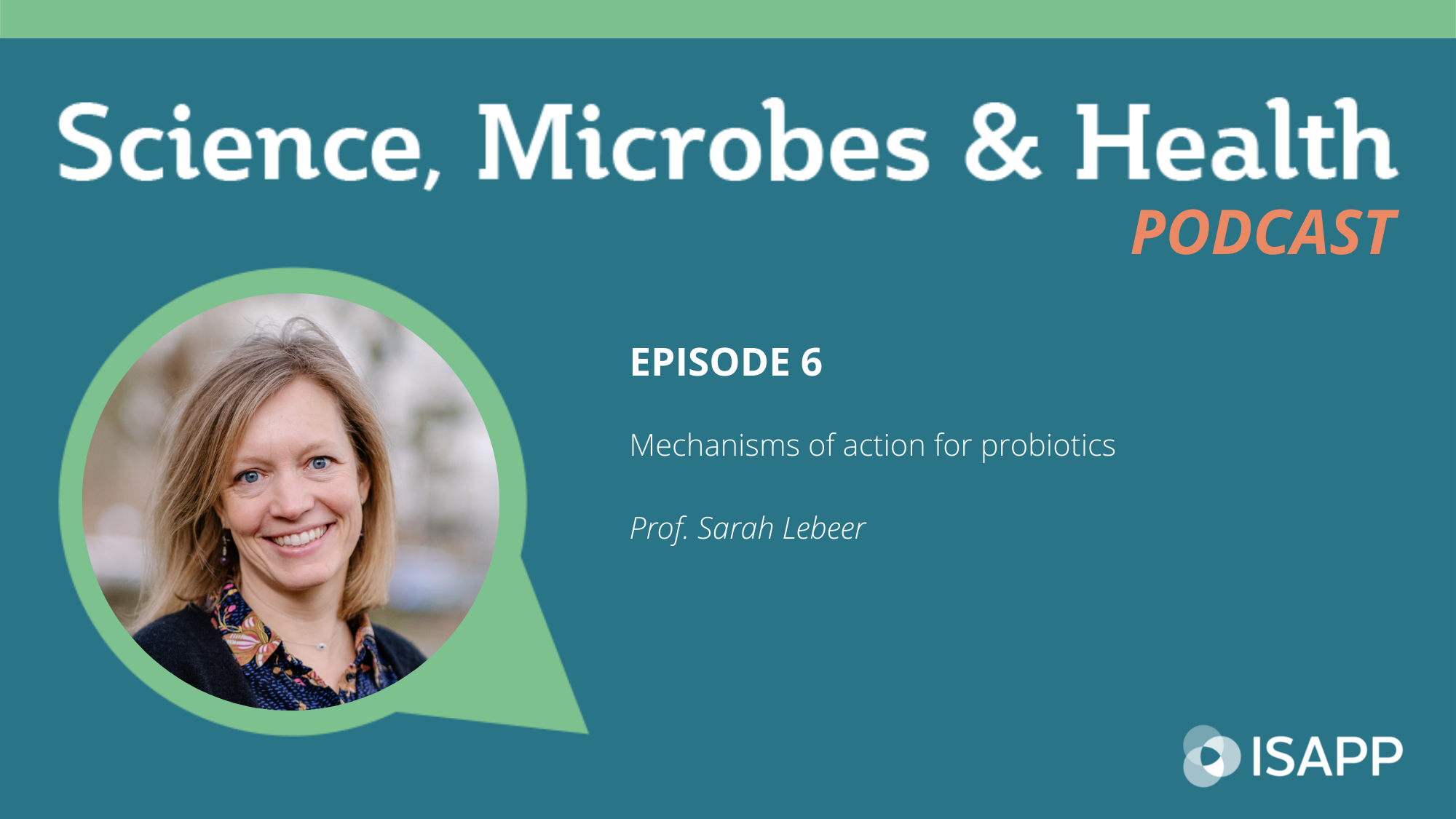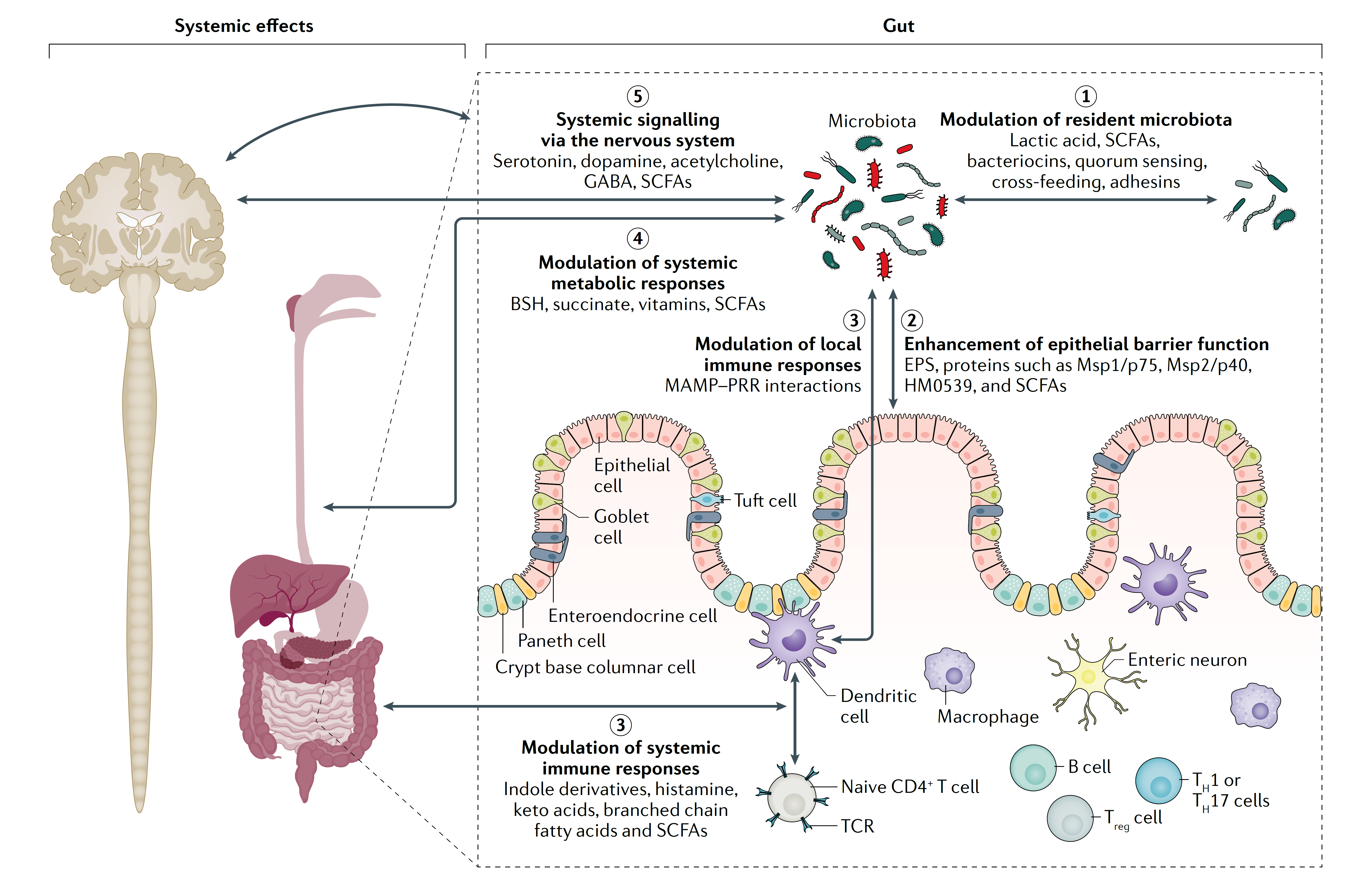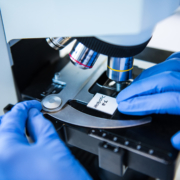Episode 6: Mechanisms of action for probiotics
Podcast: Play in new window | Download
Subscribe: Apple Podcasts | Spotify | RSS
The Science, Microbes & Health Podcast
This podcast covers emerging topics and challenges in the science of probiotics, prebiotics, synbiotics, postbiotics and fermented foods. This is the podcast of The International Scientific Association for Probiotics and Prebiotic (ISAPP), a nonprofit scientific organization dedicated to advancing the science of these fields.
Mechanisms of action for probiotics, with Prof. Sarah Lebeer
Episode summary:
In this episode, the ISAPP hosts speak with Prof. Sarah Lebeer of University of Antwerp, Belgium, to bring clarity to a commonly misunderstood topic: probiotic mechanisms of action. They discuss how probiotic mechanisms are often multi-factorial and difficult to unravel scientifically. Nevertheless, Prof. Lebeer describes five distinct mechanisms of action by which a probiotic may benefit a host.
See ISAPP’s other podcast episode on mechanisms of action, with Prof. Maria Marco: Why mechanistic research on probiotics is captivating and important.
Key topics from this episode:
- Probiotics are live microorganisms with documented health benefits; their mode of action is multifactorial.
- Mechanism of action is crucial in the probiotic field. This knowledge helps scientists understand how probiotics interact with the human host and the microbiota. However, even if mode of action for a strain is known it can be difficult to translate it into measurable outcomes for the host.
- Probiotics can benefit health by five main mechanisms of action applicable at different body sites (gut, vagina, skin, nose, etc.):
- Modulation of microbe-microbe interactions by inhibiting pathogens and promoting beneficial microbes. This is based on the production of metabolically active molecules, such as lactic acid.
- Enhancement of mucosal barrier function through interaction with epithelial cells, promoting the integrity of the barrier.
- Modulation of immune responses by interacting with various immune cells. Interaction with the immune cells is also the clearest strain-specific capacity of probiotics.
- Modulation of metabolic responses by modulating insulin resistance or cholesterol metabolism. This mode of action is novel, and research is emerging.
- Modulation of neurological signaling pathways. This is also a novel mode of action with new evidence building up.
- Postbiotics can have similar modes of action, provided the active molecules are not inactivated.
Episode links:
Graphical summary of 5 main mechanisms of action for probiotics
(Image by Sarah Lebeer. Image copyright.)
Additional resources:
Current status of research on probiotic and prebiotic mechanisms of action. ISAPP blog
Importance of understanding probiotic mechanisms of action. ISAPP blog
About Prof. Sarah Lebeer:
Sarah Lebeer is a research professor at the Department of Bioscience Engineering of the University of Antwerp, Belgium. She has studied bioscience engineering, with a specialisation in cell and gene technology/food & health and obtained her Master at KU Leuven (Belgium). In 2008, she obtained a PhD degree with a topic on the mode of action of gastro-intestinal probiotics in inflammatory bowel diseases and a scholarship in the team of Prof. Jos Vanderleyden (KU Leuven). After a postdoc on the interaction between lactobacilli, viruses and mucosal immunology, in November 2011, she was offered a tenure track position at the University of Antwerp. Since then, she is leading the Laboratory for Applied Microbiology and Biotechnology of the ENdEMIC research group.
In 2020, she was awarded with an ERC Starting Grant that enables her to gain more in-depth knowledge of the evolutionary history and ecology of lactobacilli (https://www.lebeerlab.com). This rationale was also an important driving force to revise the Lactobacillus genus taxonomy with a large international consortium. Within the ERC project, Sarah has also launched the Isala citizen-science project to gain new insights in the role of vaginal lactobacilli for women’s health (https://isala.be). Since 2018, Sarah is an academic board member of the International Scientific Association on Probiotics and Prebiotics (www.isappscience.org). Communicating about beneficial microbes and probiotics for experts and laymen is an important inspiration for her daily work.








